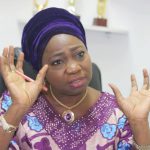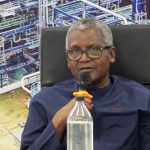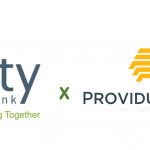World
Bybit Launches Ether Futures Contract as Bitcoin Value Wanes

By Aduragbemi Omiyale
As the value of Bitcoin, the most popular digital currency in the global cryptocurrency market continues to wane, a notable cryptocurrency exchange, Bybit, is launching the Ether futures contract.
The introduction of the futures occurred on Thursday, May 20, 2021, allowing further diversifying its offerings of the leading altcoin.
A statement from the company disclosed that the Ether futures will not require a funding fee; so as long as the contracts are valid, traders can hold their positions free of charge.
The previously announced Bybit Cloud Mining, a mining-as-a-service (MaaS) product that gives users instant access to ETH mining from as little as $100, will arrive with ETHUSD0924 on May 24.
ETH, the second-largest cryptocurrency by market capitalization, has seen its price explode 20-fold over the last 12 months, four times that of Bitcoin during the same period.
The Ethereum gas fee has stabilized after April 15’s Berlin Upgrade, even as the upcoming EIP 1559 (London) fee market overhaul, expected in July, promises further gas cost reduction and a deflationary monetary policy.
Commenting on the latest development, the co-founder and CEO of Bybit, Mr Ben Zhou, stated that, “As the Bitcoin price continues to stagnate, traders and investors are increasingly looking towards alternatives.”
He further said, “We are pleased to launch our new Ether futures contract as rising retail and institutional demand paves way for a new alt season.
“Ether futures contract and Bybit Cloud Mining join our existing ETHUSD and ETHUSDT perpetual contracts in the ETH product lineup, and will create new opportunities for our clients, whether they are looking to hedge their positions or to further capitalize on future price movements of ETH.”
World
Noel Anderson Joins State Duma’s Expert Council on Russian-African Relations
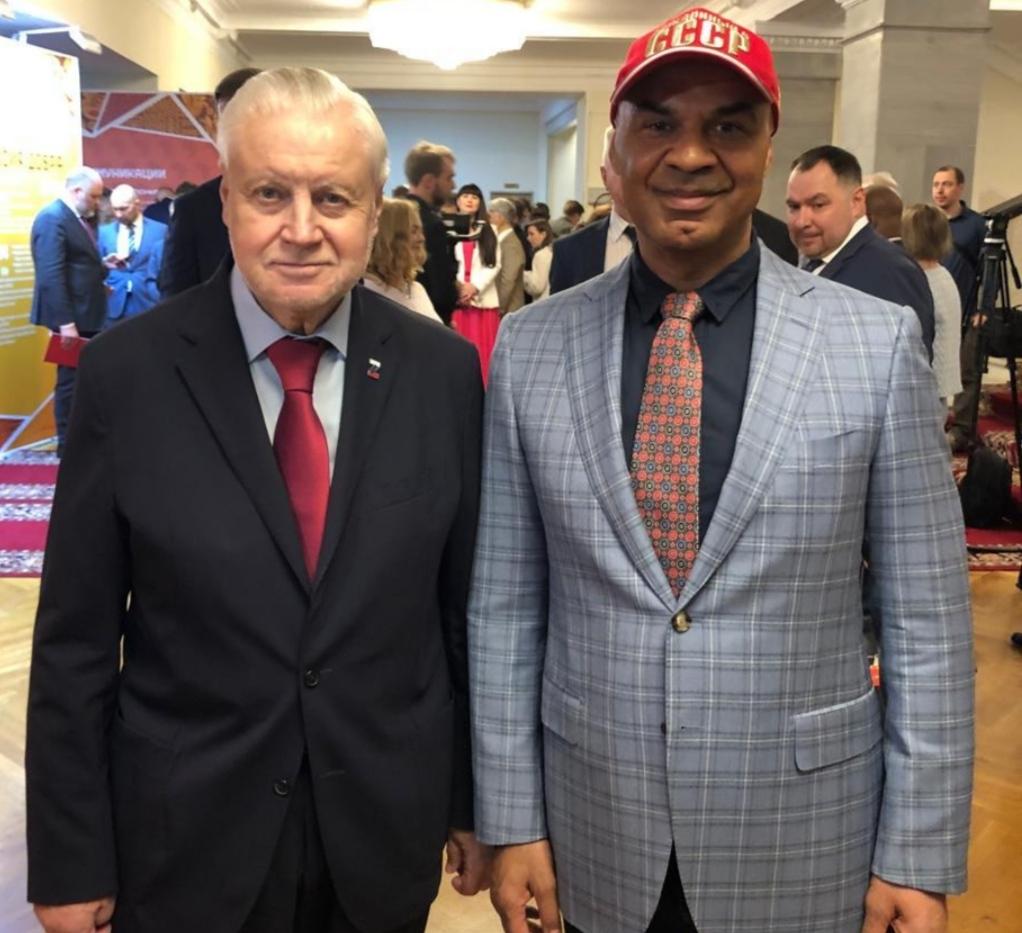
By Kestér Kenn Klomegâh
Russia’s State Duma, the lower Chamber of Legislators, has reconstituted its Expert Council on the development and support of comprehensive partnership with African countries under Alexander M. Babakov, the Deputy Chairman of the State Duma of the Federal Assembly of the Russian Federation.
By creating this Expert Council on Russia’s relations with Africa, it underscores the leadership’s strategic policy diversity that aims at advancing a powerful leverage into the African continent, grappling with the tremendous emerging opportunities and the challenges in pursuing socio-economic cooperation, sustaining the political dialogue as well as parliamentary relations.
As part of practical steps toward strengthening economic partnership, African countries grappling with rapidly geopolitical changes, the Expert Council pledges to take unique pragmatic measures toward implementation of the various decisions adopted at both first and second Russia-Africa summits held respectively at southern coastal city of Sochi (October 2019) and in St. Petersburg (July 2023).
In a brief interview after the announcement in late August 2025, Noel Anderson explained that his role together with other members includes designing a long term policy strategy, undertaking innovation initiatives, and especially forging economic expansions into the African continent which is now attracting foreign players. By this appointment, Noel Anderson brings extensive sports and entrepreneurial expertise in contributing to the full-fledged operations of the Council.
The Expert Council draws its members from different spheres including the Russia’s educational institutions, ministries and departments, NGOs and the State Duma. The list made publicly available included Noel Anderson, Russian-Ghanaian entrepreneur and sports amateur. In the historical and professional career context, Noel Anderson became ultimately the first Ghanaian citizen to serve at this top-level position, on the State Duma’s Expert Council, in the Russian Federation.
“Without much doubt, the newly created State Duma Council is, apparently, a powerful engine with multitude of significant tasks to support Kremlin’s and Russian government’s efforts in building relations with Africa. This, therefore, means not only leveraging our existing strategic partnerships with African leaders, but also actively forging new alliances, and strengthening our competitive position across Africa. We will be dealing with aspects of the policy strategies as outlined and proposed by President Vladimir Putin during the first and second Russia-Africa Summits,” Anderson emphasized in the media interview.
According to the official documents made available, Noel Anderson is currently the Head of the Sports Committee of the Union of African Diaspora, Chairman of the Sports Committee of the International Association GATINGO. He is business consultant and also an avid researcher on foreign policy, particularly on Russian-African affairs. He graduated with a PhD from the People’s Friendship University named after Patrice Lumumba.
The State Duma Council members include Professor Irina Abramova, as the Deputy Chairperson of the Expert Council, and Director of the Institute for African Studies (IAS), Nikolay Novichkov, State Duma deputy and Deputy of the Expert Council, Larisa Efremova, Vice-Rector for International Affairs of the People’s Friendship University named after Patrice Lumumba, Alexey Maslov, Acting Director of the Institute of Asian and African Studies at Lomonosov Moscow State University, Igor Morozov, Chairman of the Coordinating Committee for Economic Cooperation with Africa (AfroCom) at the Chamber of Commerce and Industry, Dmitry IIyich Suchkov, Senior Advisor to the Department of Pan-Africa Problems and Regional Organizations of the Ministry of Foreign Affairs and Oleg Ozerov, Ambassador-at-Large, Head of the Secretariat of the Russia-Africa Economic Forum of the Russian Federation.
In today’s rapidly changing geopolitical environment, Russia has reiterated the importance of creating a new architecture based on a shared aspiration, on peaceful and harmonious coexistence with others. Russia works to lay the foundations for a fairer multipolar world – one built on the principles of sovereign equality of states, constructive cooperation, and a balance of interests in the emerging new world.
The State Duma’s and Alexander Babakov’s website show the full list of members, all the members with their employment backgrounds. The website says the Expert Council will be responsible for optimizing Russia’s policy within the framework of parliamentary relations, and provide support for multifaceted policy dynamics with Africa. The State Duma is the lower chamber of legislators of the Russian Federation.
World
AfDB Urges Nigeria, Benin, Cameroon to Deepen Economic Cooperation
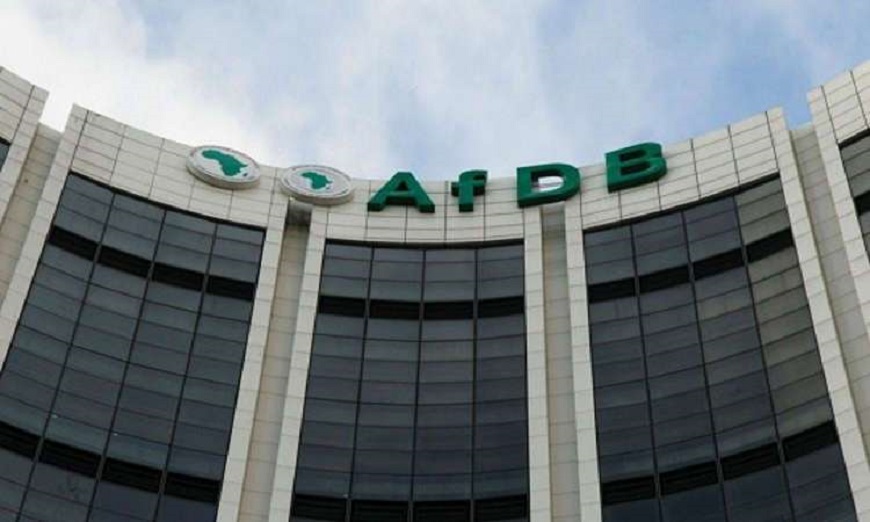
By Adedapo Adesanya
The trio of Nigeria, Benin and Cameroon have been urged by the African Development Bank (AfDB) to deepen regional cooperation in order to drive an inclusive continental market.
This call was given by the Director General of the Nigeria Department Office of AfDB, Mr Abdul Kamara, on Thursday, noting the bank had invested $55 billion trade-enabling infrastructure in the continent.
Mr Kamara said the lender had also continued to support programmes and initiatives that enhanced the meaningful participation of women and young people in the African market, thus, ensuring an inclusive continental market.
Speaking at the opening of a technical workshop on trilateral trade cooperation among Nigeria, Benin, and Cameroun in Abuja, Mr Kamara said the workshop was convened at a critical moment in the continent’s economic integration.
He said it aligned with the continental priorities of deepening trade integration, accelerating the development of trade-enabling infrastructure, and policy convergence, commending Nigeria and Benin for the progress achieved in their ongoing trade negotiations.
Represented by Regional Integration Coordinator, Nigeria, AfDB, Mrs Ometere Omoluabi-Davies, Kamara stated that these efforts were expected to enhance economic cooperation and boost trade volumes between the two countries under the ECOWAS Trade Liberalisation Scheme (ETLS) and intra-regional trade flows.
The bank also hailed Benin for its leadership in regional integration.
“According to the Africa Visa Openness Index, a tool developed by the African Union and the African Development Bank to monitor African countries’ performance regarding the free movement of persons, Benin ranks among the best performers on the continent, offering visa-free access to all African citizens.
“Moreover, the recent expansion of port infrastructure strategically positions the country as a trade-facilitating gateway for intra-African trade.
“To build on this momentum, the bank takes this opportunity to urge Benin to consider ratifying the AfCFTA agreement to consolidate and expand its regional integration gains and unlock market opportunities for ‘made in Benin’ goods and services.”
He added, “I also congratulate the Republic of Cameroon for its active engagement in implementing the AfCFTA and the proactive steps it has taken to expand trade beyond the Central African regional bloc.
*Through its participation in the AfCFTA’s Guided Trade Initiative and the strengthening of trade ties with Nigeria and Benin, Cameroon is helping to unlock the potential of cross-regional trade between West and Central Africa, demonstrating the value proposition of the AfCFTA.
“The outcomes of this strategic workshop are critical. They will set a precedent for the coordinated implementation of regional and continental trade arrangements, helping to identify trade-enabling corridors that connect regions and leverage the comparative advantages of each country.”
He said AfDB was committed to supporting its regional member countries in achieving their regional integration goals and ensuring they benefited from it.
Mr Kamara stated that through its Regional Operations Envelope (ROE) and the Regional Public Goods Window, the bank continues to support regional operations to address hard and soft infrastructure challenges and enhance trade, mobility, competitive value chains, and private sector growth across the continent.
“It is our hope that this strategic engagement will culminate in the development and submission of a joint project proposal by the three countries under the ROE, for a regional operation that will unlock market opportunities, enhance trade between West and Central Africa, and promote a coordinated approach to the implementation of regional trade agreements and the AfCFTA.”
World
Dangote Plans $2.5bn Fertiliser Plant in Ethiopia, to Maintain 60% Ownership
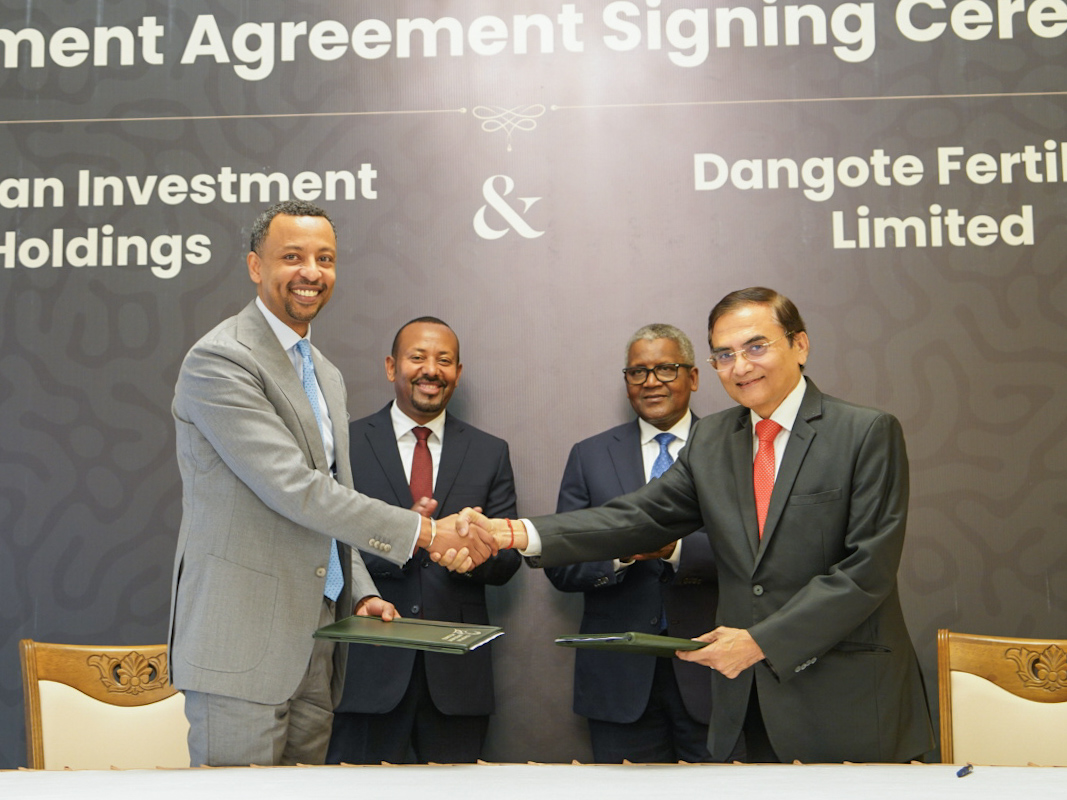
By Adedapo Adesanya
Nigerian billionaire businessman, Mr Aliko Dangote, has signed an agreement with the Ethiopian government to build a $2.5 billion fertiliser plant in the latest move to expand his empire.
The new plant, which will take about 40 months to complete, is expected to produce 3 million tons of fertiliser annually, and will be linked by pipeline to the Calub and Hilala natural gas fields in the southeast.
Signed in the capital city of Addis Ababa on Thursday, Mr Dangote will own 60 per cent of the facility under the agreement, while the remaining 40 per cent will be held by the state-owned Ethiopian Investment Holdings (EIH).
The project will be located in Ethiopia’s eastern Somali region.
EIH noted that the project would significantly cut Ethiopia’s dependence on fertiliser imports, providing a reliable local supply and reducing foreign exchange pressures.
Speaking at the signing, the country’s Prime Minister, Mr Abiy Ahmed, described the deal as a landmark for Ethiopia’s food security ambitions.
“This project will create jobs locally, ensure a reliable fertiliser supply for our farmers who have long faced challenges, and mark a decisive step in our path to food sovereignty,” he said in a statement.
Dangote Industries already operates cement businesses in 10 African countries and runs a 3 million-ton fertiliser hub in Nigeria that began operations three years ago.
“This partnership with Ethiopian Investment Holdings represents a pivotal moment in our shared vision to industrialise Africa and achieve food security across the continent,” Mr Dangote said.
Mr Dangote already has business investments across diverse sectors including cement manufacturing, sugar refining, salt and seasoning production, fertilizer manufacturing, and oil and gas (notably the 650,000 barrels per day Dangote Refinery), among others. He has also disclosed plans to play in other sectors including power generation and steel manufacturing, but some of these haven’t materialised yet due to allegations of monopoly.
-

 Feature/OPED6 years ago
Feature/OPED6 years agoDavos was Different this year
-
Travel/Tourism9 years ago
Lagos Seals Western Lodge Hotel In Ikorodu
-

 Showbiz3 years ago
Showbiz3 years agoEstranged Lover Releases Videos of Empress Njamah Bathing
-

 Banking7 years ago
Banking7 years agoSort Codes of GTBank Branches in Nigeria
-

 Economy2 years ago
Economy2 years agoSubsidy Removal: CNG at N130 Per Litre Cheaper Than Petrol—IPMAN
-

 Banking3 years ago
Banking3 years agoFirst Bank Announces Planned Downtime
-

 Sports2 years ago
Sports2 years agoHighest Paid Nigerian Footballer – How Much Do Nigerian Footballers Earn
-

 Technology5 years ago
Technology5 years agoHow To Link Your MTN, Airtel, Glo, 9mobile Lines to NIN




